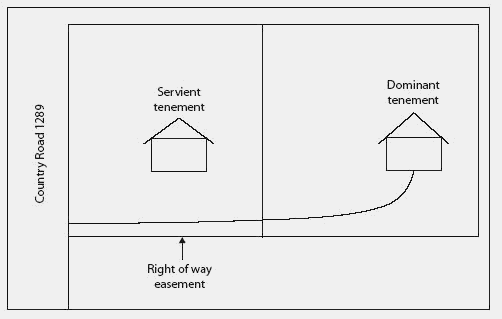Easement Rights
An easement is a certain right to use the real property of another without possessing it. It is "best typified in the right of way which one landowner, A, may enjoy over the land of another, B." Easements are helpful for providing pathways across two or more pieces of property or allowing an individual to fish in a privately owned pond. An easement is considered as a property right in itself at common law and is still treated as a type of property in most jurisdictions. The rights of an easement holder vary substantially among jurisdictions. Historically, the common law courts would enforce only four types of easement: Right-of-way (easements of way) Easements of support (pertaining to excavations) Easements of "light and air" Rights pertaining to artificial waterways. Modern courts recognize more varieties of easements, but these original categories still form the foundation of easement law.







No comments:
Post a Comment